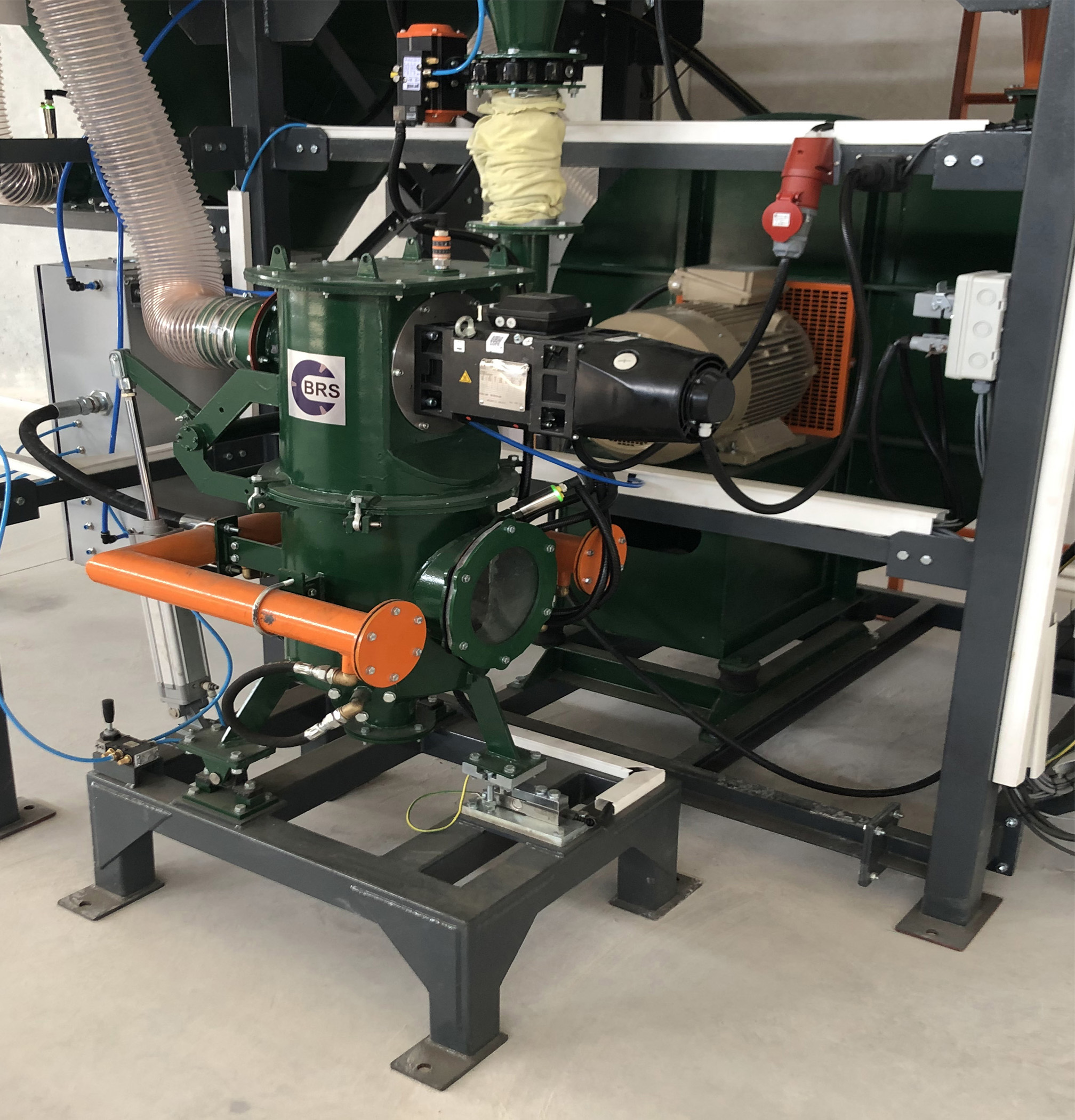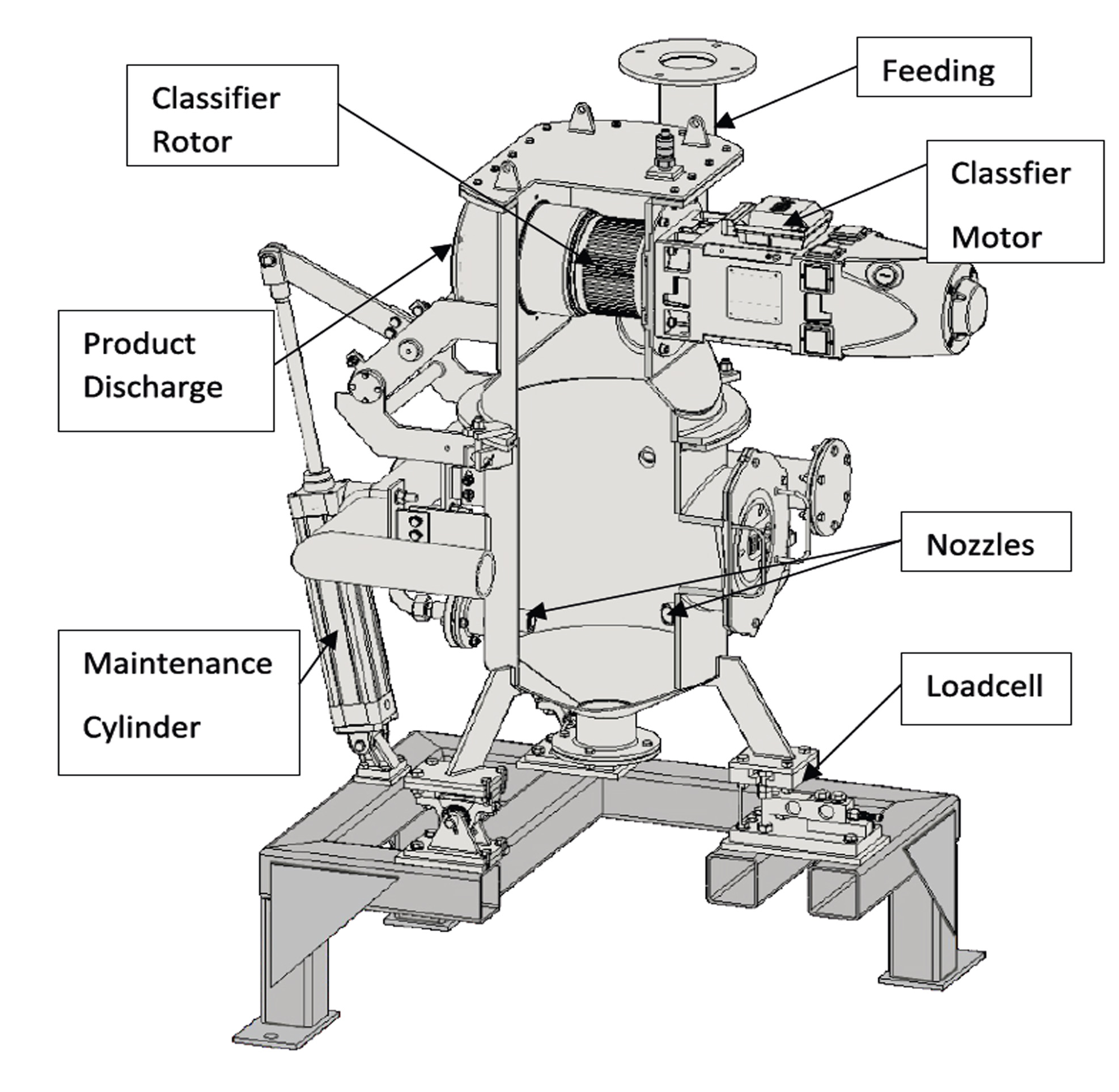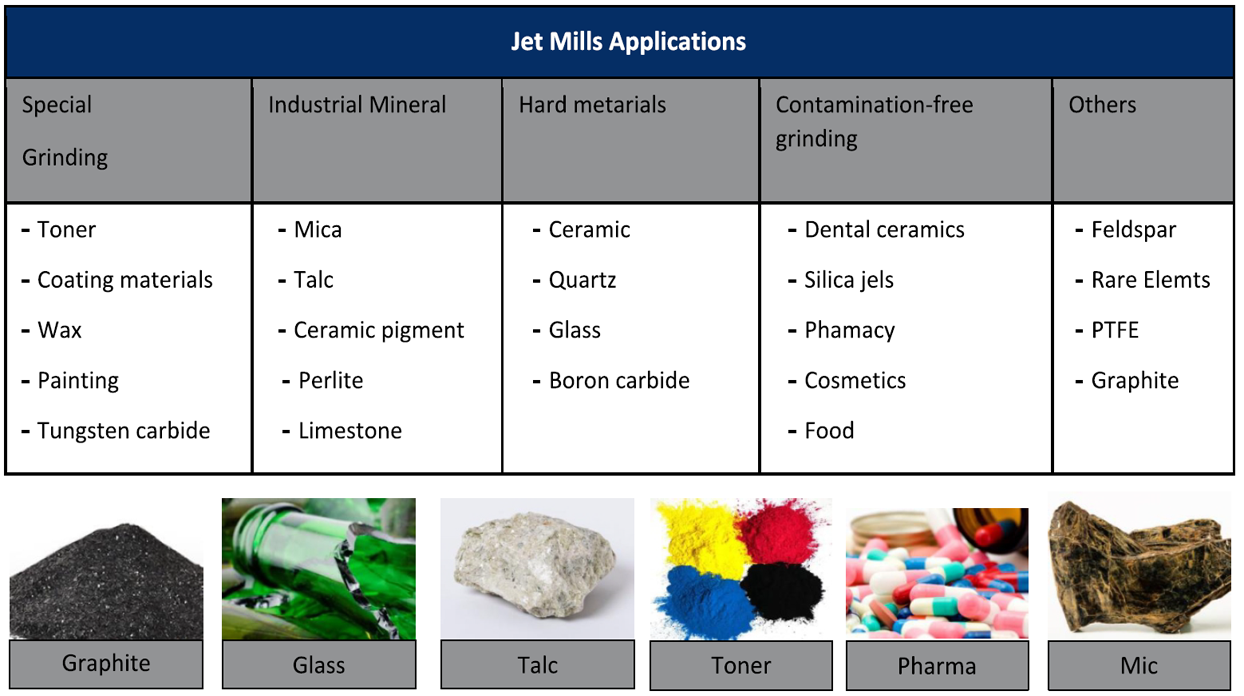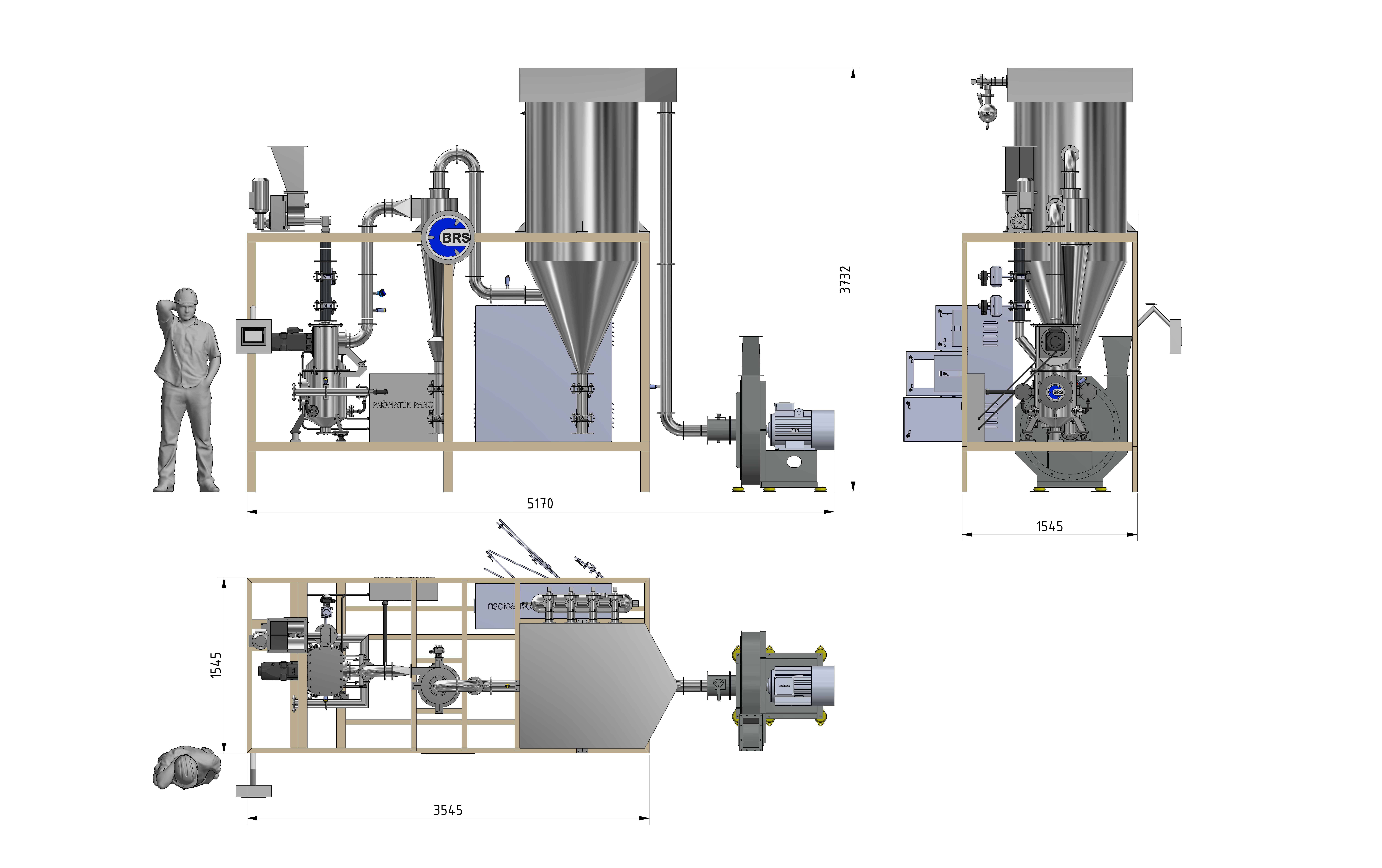

Jet Mills
Jet Mill
Jet mill technology is a widely used grinding method, especially in applications where very fine particles of hard materials with high purity must be obtained.
* Controlled grain size obtaining d50 1 -50 mic.
* Environmentally friendly with its closed system, dust-free and low noise level
* Ease of commissioning and operation thanks to automation
* High and low pressure operation
* Grinding and separation are done simultaneously thanks to its compact structure. Occupy less area
* Protection against wear with steel, stainless and ceramic materials
* Suitable for hard and abrasive materials
* Possibility of grinding without heat
After the high pressure air or gases (nitrogen or steam) compressed in the compressor are filtered and dried, they are sprayed into the grinding chamber with the nozzles in the jet mill. Grinding occurs when the air flow intersects with multiple nozzles and the materials collide with each other. The ground materials are carried to the separator by the suction of the fan. The coarse and fine materials are separated by the strong centrifugal force created by the separator rotating at high speed. The desired grain size is obtained precisely depending on the rotation speed of the separator. Fine grained products are separated with the help of a cyclone and filter and used as a product. Coarse grains cannot pass through the separator and go to the grinding area to be ground again. In this way, a product with a constant capacity is obtained depending on the mill size.
| Type | JD | JD160 | JD200 | JD350 | JD500 | JD750 | JD1000 | JD1500 |
|---|---|---|---|---|---|---|---|---|
| Air Consumption | m³/h | 50 | 80 | 350 | 800 | 1800 | 3200 | 5500 |
| Nozzle Qty | Pcs | 3 | 3 | 3 | 3 | 3 | 4 | 4 |
| Mill Diameter | mm | 160 | 200 | 350 | 500 | 750 | 1000 | 1500 |
| Classifer Power | kW | 0,55 | 1,5 | 2,2 | 5,5 | 11 | 15 | 30 |
| Classifer Speed | Rpm | 15000 | 10000 | 8000 | 5000 | 3500 | 2500 | 2000 |
| Fineness | D97 mic. | 4-60 | 5-60 | 5-70 | 6-80 | 7-100 | 8-120 | 10-150 |
The values given vary depending on the specific gravity, hardness, grindability energies of the material.
The values given below are for reference purposes. For details, please contact our company.
Jet Mill Applications

Jet Mill Advantages and Disadvantages
| Advantages | Disadvantages |
|---|---|
| There is no foreign contamination in the product due to air and material-material grinding |
Fine material feeding is required. |
| There is no heat increase during grinding | Energy consumption is high compared to other grinding. |
| Suitable for hard and abrasive materials | Low capacity |
| The desired grain size can be obtained thanks to the separator in the mill. |
|
| It works stably and quietly | |
| There is no consumable consumption | |
| Occupy less area | |
| It is easy to operate |
Test Center
Tests are carried out in the test unit with the customers' own materials, and performance
tests such as capacity and energy are determined, and the appropriate machine is selected for the customer.

Jet Mill Animation video
LAYOUT
